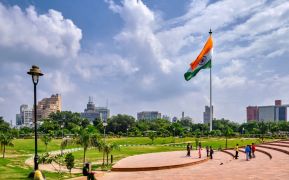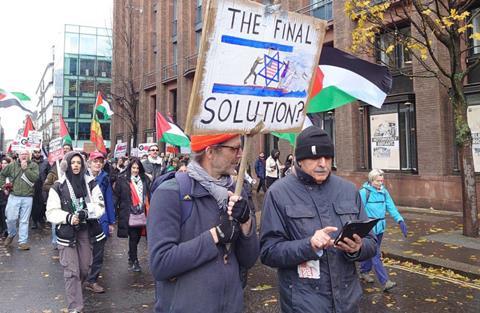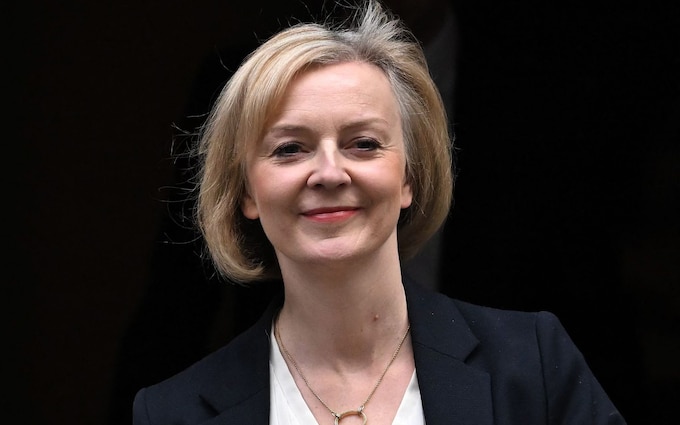Its stupendously high rate of major character death, especially by murder, and even more so after 2002. 31+ deaths in 23 years, including six in a fire at Sun Hill police station in 2002 and another three when a van filled with petrol ploughed into the front office in 2005 — Sun Hill is one Dangerous Workplace.
Self explanatory title. I abhor that nicey nicey, politically correct, pseudo-Christianity which almost always supports leftwing attitudes - which in most cases are profoundly anti-Gospel. This Blog supports persecuted Christians. This Blog exposes cults. This Blog opposes junk science. UPDATED DAILY. This is not a forum. This Blog supports truly Christian websites and aids their efforts. It is hardhitting and unashamedly evangelical so if it offends - please do not come to this site!
Thursday, February 29, 2024
Disgraceful.
 US State Department criticised over failure to designate India a religious freedom violator.
US State Department criticised over failure to designate India a religious freedom violator.
- Anugrah Kumar | Fri 19 Jan 2024.
The U.S. State Department's failure to name India to its "Countries of Particular Concern" list despite reports of increasing attacks on Christians in the country list has sparked criticism from Christian groups and a congressionally mandated watchdog. CT.
Anti-Semitism Awareness.
If you don’t think that antisemitism has become magnified in recent weeks, then you’re definitely not Jewish, says Michael Coren

Source: @_Jacker_
One of the placards seen on the streets of London during recent protests over Israel’s campaign in Gaza (December 9). Police say they are “actively investigating” but no arrests have been made
I was first aware of my Jewish heritage when I was 7 years old. I was at the home of a new friend I’d met in the local park. We were playing innocently when his father came home and began shouting. I only realised later what he’d been saying. “Is he a Jew? Get him out of here.”
I’m actually only half-Jewish, so perhaps I should have asked if I could at least stay until lunchtime…
In fact, I experienced very little antisemitism growing up in Britain and now living in Canada. I’ve three Jewish grandparents but my maternal grandmother was Anglican and I was raised with a limited Jewish identity.
Coren is a Hebrew name. People knew, and generally didn’t care.
I’d long considered hatred of Jewish people a pathology that while never dead, was confined to the largely irrelevant fringe. The reaction to Israel’s campaign in Gaza has changed that, however.
Of course there’s a vital difference between criticism of Israel and antisemitism, and of course the term is sometimes wrongly and politically applied, but if you don’t think that antisemitism has become magnified in recent weeks the one thing I can guarantee is that you’re not Jewish.
The basics first. I’ve lived in Israel, worked with Palestinian Christians in the peace movement, wrote my university thesis on pre-state Zionist terrorism, know the history and politics of the region rather well, and believe in a ceasefire, a two-state solution, justice for Palestinians, and peace for Israel.
TO CALL JESUS A PALESTINIAN IS RACIALLY AND POLITICALLY CRASS
I’d always assumed that most of my fellow Christians agreed with me on all this and I continue to believe that the vast majority still do.
But what of the Christian left?
I’ve a man of the left. Liberal, social democratic, an old-style Labour type of Christian. So, I was a little surprised to be blocked on Twitter by a cofounder of the Red-Letter Christians in the US and a prominent left-wing Christian. I’d objected to his reference to the “Holocaust hermeneutic”. I found it to be reductive and smug, especially as I’d grown up being aware of my great-aunt’s death camp tattoo.
I’m sure I’ll survive that social media excommunication but it’s indicative of a genuine problem. Gaza and the Palestinians have become a cause for the left, and that includes left-wing Christians. That’s entirely understandable and usually laudable, but for Christians there has to be a wider, deeper, more nuanced analysis.
One of, perhaps the main, motivation for Israel’s foundation in 1948 was the unparalleled agonies suffered by Jews in Christian Europe. Jews left the Arab, Muslim world later and weren’t the main protagonists in the early years. Centuries of pogroms, blood libels, expulsions, massacres, and finally the Holocaust took place in a continent that was overwhelmingly Christian. Good God, many of these atrocities were Church-initiated, and it’s only fairly recently that the wound of Christian antisemitism has begun to heal.
None of this should prevent a Christian from demanding justice and peace in Palestine, but it should inform our approach, understanding, and sympathies.
I also see a shameful lack of empathy in the depiction and description of Jesus as a Palestinian. I appreciate what is being attempted, but we should never forget the horrors that have been caused by the expunging of the Jewishness of Jesus and his family and early followers. He was a Jew, a Galilean Jew, with a Jewish mother. To suggest otherwise is not only bad theology and a denial of God’s plan but also racially and politically crass and dangerous.
I sometimes hear and read things from Christians that border on the racist, and make it appear that the entire Israel/Palestine conflict exists in a bubble without any historical and human context. “Colonial settlers,” they say. Where were the survivors of the Shoah and later the Mizrahi Jews supposed to go, and why does my paternal DNA go back not to Europe but the Middle East?
No authentic follower of Jesus can turn away from the slaughter of the innocents. But our commitment is not to a political ideology but to a relationship with God, and such a relationship rests on love for all people, understanding of our own brokenness and failings, and to a great, grand revolution of compassion and understanding. The Jewish Jesus teaches me that, and should teach us all. PC.
Still The Worst of The Worst.
North Korea is once again world's worst persecutor of Christians.
 Pyongyang, the capital of North Korea, the closed-off communist country.(Photo: Getty/iStock)
Pyongyang, the capital of North Korea, the closed-off communist country.(Photo: Getty/iStock)Open Doors has released its World Watch List 2024 detailing the 50 countries where Christians suffer the most for their faith, and North Korea ranks number one for the 22nd time in 23 years.
Open Doors was especially critical of China's new policy of returning escapees back to North Korea.
It said that while the world's attention was focused on Israel and Gaza, China repatriated around 600 North Koreans back to the hermit communist country on 9 October 2023.
Most of them are thought to be women and all are likely to face a "living hell" upon their return.
"On return they face torture, sexual abuse and hard labour in the nation's infamous prison camps," said Open Doors.
However, other parts of the world are also causing Open Doors serious concern, including sub-Saharan Africa where it warns that a "double blow of violent instability and authoritarian control" could wipe out the Christian presence altogether.
It reports that at least 4,606 Christians were killed in the region last year because of their faith but it expects that the real figure is much higher.
"Christian minorities across east and west Africa face twin existential threats: violent disorder exploited by radical jihadists and autocratic governments backed by larger powers outside the region," said Open Doors.
Countries from the region on this year's World Watch List are Burkina Faso at number 20, Mali at 14, Mozambique at 39, Nigeria at number 6 and Somalia at number 2.
Open Doors blames the violence on "fractures in governance and security" that have "opened the door" for jihadist activities.
"Islamist militants are exploiting unstable political conditions across Sub-Saharan Africa," it said.
"Their aim is to sow disorder and ultimately seize power, turning regions or even nations into Islamic caliphates run under Islamic Sharia laws.
"The fractures in governance and security have opened the door for the jihadist activities seen."
Open Doors said it was most concerned about Nigeria, which accounts for over 82 per cent of Christians killed for their faith worldwide.
Christians have fallen victim to countless attacks by Islamist militants belonging to terrorist groups like Boko Haram and the Islamic State West Africa Province (ISWAP). Other perpetrators are radicalised Fulani herdsmen.
Christian communities have suffered successive raids with widespread killing, raping, maiming, destruction of property, and kidnapping for ransom.
"Attacks by Islamic extremists against Christians in sub–Saharan Africa have intensified as chaos and collapse besets the region," said Henrietta Blyth, Chief Executive of Open Doors UK and Ireland.
"Even in the IDP camps Christians feel fearful and unsafe since the very people who attacked them may be grazing their herds or robbing their crops just outside the camp.
"Governments in the region need to take meaningful action. Without this, once thriving Christian communities will disappear."
Open Doors reports an overall increase in the amount and intensity of persecution taking place worldwide, with 365 million Christians facing "high levels" of persecution and discrimination for their faith - up from 360 million last year.
In India, which ranks 11th again, there has been a nine-fold increase in Christian fatalities in the last year, rising from 17 to 160, after months of violence in the north-eastern state of Manipur.
Open Doors also noted an "extreme rise" in attacks on churches and Christian schools from 67 in the previous report to 2,228.
The violence in Manipur left 160 Christians dead, and displaced 62,000 people, many of whom remain in camps "with no hope of returning home safely".
"We discovered that many of the houses destroyed in the rioting had been marked with a red circle and cross a few months earlier by Meitei Extremists. This had been planned months before," said Chung Mang, a Christian leader from Manipur.
In other parts of India, Christians have been harassed and attacked for their faith. Much of the hostility has been attributed to anti-conversion laws which are in place across 12 states in the country. CT.
Wednesday, February 28, 2024
So Much About Global Warming Is Total Pap.
Please do let Dr Robson explain just a few of the countless absurd anomalies, overstatements and - yes - outright lies, to aid your understanding!
An Amazing Footballer.
Stan Bowles, brilliant maverick QPR and England footballer – obituary.
He was as famous for his colourful antics off the pitch as for his supreme natural talent on it

Stan Bowles, who has died aged 75, was a footballer whose maverick skills on the pitch were matched by his colourful antics off it; his flicks, dribbles and lay-offs were exquisite, while his drinking, gambling and womanising became the stuff of legend...
No Case For Mass Migration.
The economic case for mass migration has finally collapsed.

Learn From This.
Jeremiah 17.
and beyond cure.
Who can understand it?
and examine the mind,
to reward each person according to their conduct,
according to what their deeds deserve.”
Our Anti-Christian Police Force.
Police admit attempt to 'silence' Christian street preacher for criticising other religions and atheism was 'disproportionate' as they back down in free speech row.
By RORY TINGLE, HOME AFFAIRS CORRESPONDENT and EIRIAN JANE PROSSER FOR MAILONLINE
PUBLISHED: 12:07, 27 February 2024
|
A police force last night admitted its attempt to 'silence' a Christian street preacher for criticising Hindus, Muslims and atheists was 'disproportionate' Avon and Somerset Police tried to prevent Bristol-based pastor Dia Moodley from 'passing comments on any other religion or comparing them to Christianity'. It also sought to stop him displaying 'graphi c material'.The Evangelist fundamentalist had become known to the police after holding up signs saying 'abortion is murder' and mocking followers of other religions for failing to acknowledge 'God's truth'. Mail.
Tuesday, February 27, 2024
No Money For The Hugely Under-Resourced Military!
Unbelievable! SOOOOO glad I can vote for Reform UK.
Blogger: interesting that so much of our military budget has been shovelled towards Ukraine with so many NATO nations giving zero.
The first duty of government is to protect its people. Our military is UNFIT FOR PURPOSE!
The Abomination Into Which The BBC Has Turned!
https://www.express.co.uk/news/uk/1871011/bbc-trans-cat-killer-sentenced
Interesting.
10 Things You Should Know about Francis Schaeffer
April 11, 2016by: William Edgar
1. The Bible was central to his worldview.
2. He experienced deep spiritual crisis at one point in his life.
3. He founded l’Abri based on a rich view of sanctification.
4. He believed in the dignity of all humans.
5. He affirmed the dual reality that there is no truth without love, but also that there is no love without truth.
A fundamental principle held by Francis Schaeffer, emphasized over and over again, was that “true truth” was tantamount, and yet was cold and cruel without love.
6. He thought that the best apologetic method was presuppositional.
7. He affirmed the goodness of creation.
8. He liked to trace the rise and decline of Western civilization.
Schaeffer on the Christian Life
William Edgar
9. He applied the Christian message to all of life, including the arts, pollution, racism, affluence, and the destruction of life.
10. He deeply loved his wife, Edith.

Was Truss Right?
Truss had it right – there’s only one way out of this mess.
All Bad Law Must Go!
Peers challenge extreme abortion law proposals in Crime and Policing Bill. (Photo: Getty/iStock) Peers are set to challenge extreme abortio...

-
Franklin Graham preached in Glasgow, launches new fund to defend religious freedom in the UK. Staff writer Franklin Graham preaching at ...
-
7 ) ... Evidently some people are throwing you into confusion and are trying to pervert the gospel of Christ. 8) But even if we or an ang...
-
http://www.telegraph.co.uk/news/politics/8729962/Quango-bosses-double-their-pay.html Good work, 'Dave'!
.jpg)
.jpg)
.jpg)
.jpg)

.jpg)

